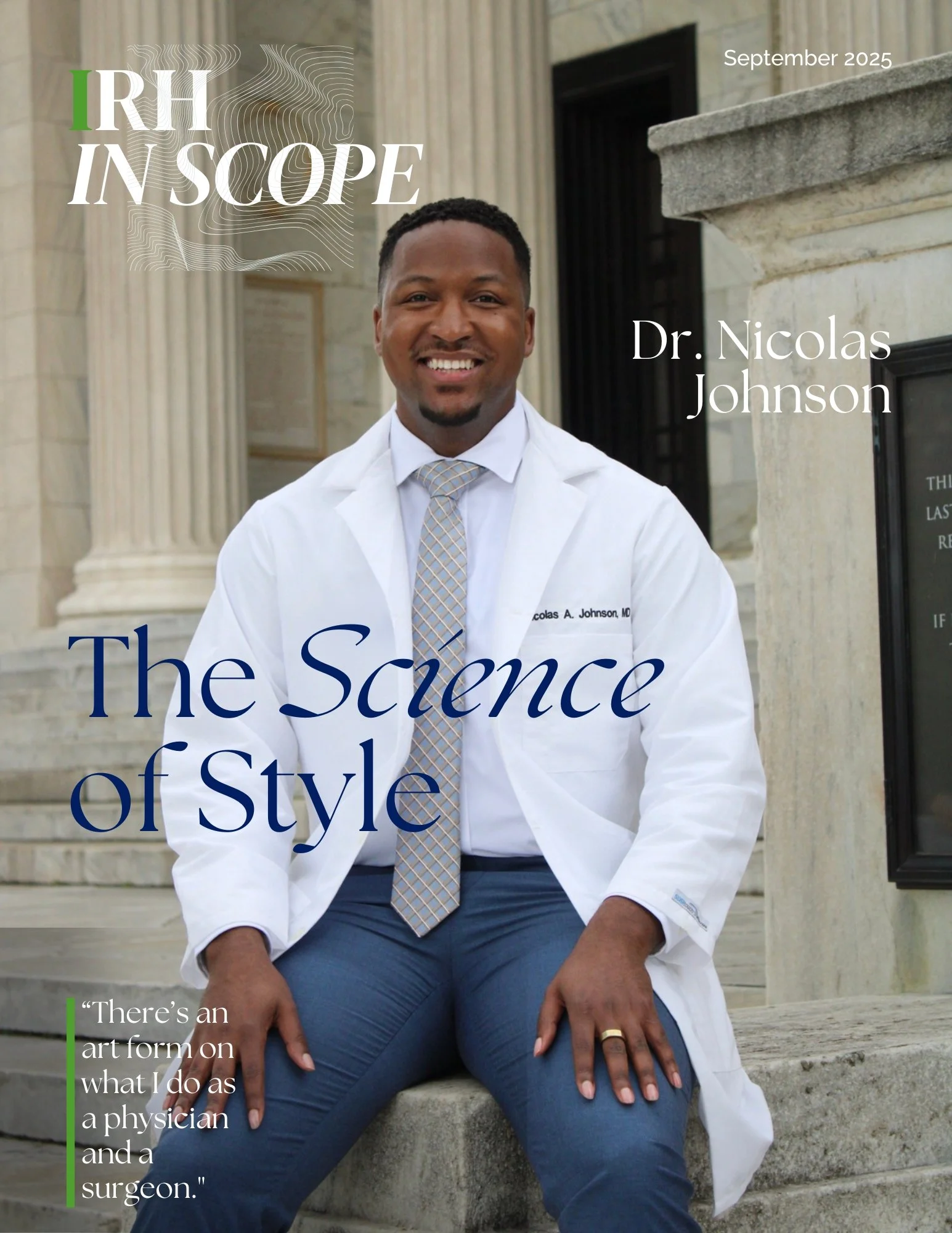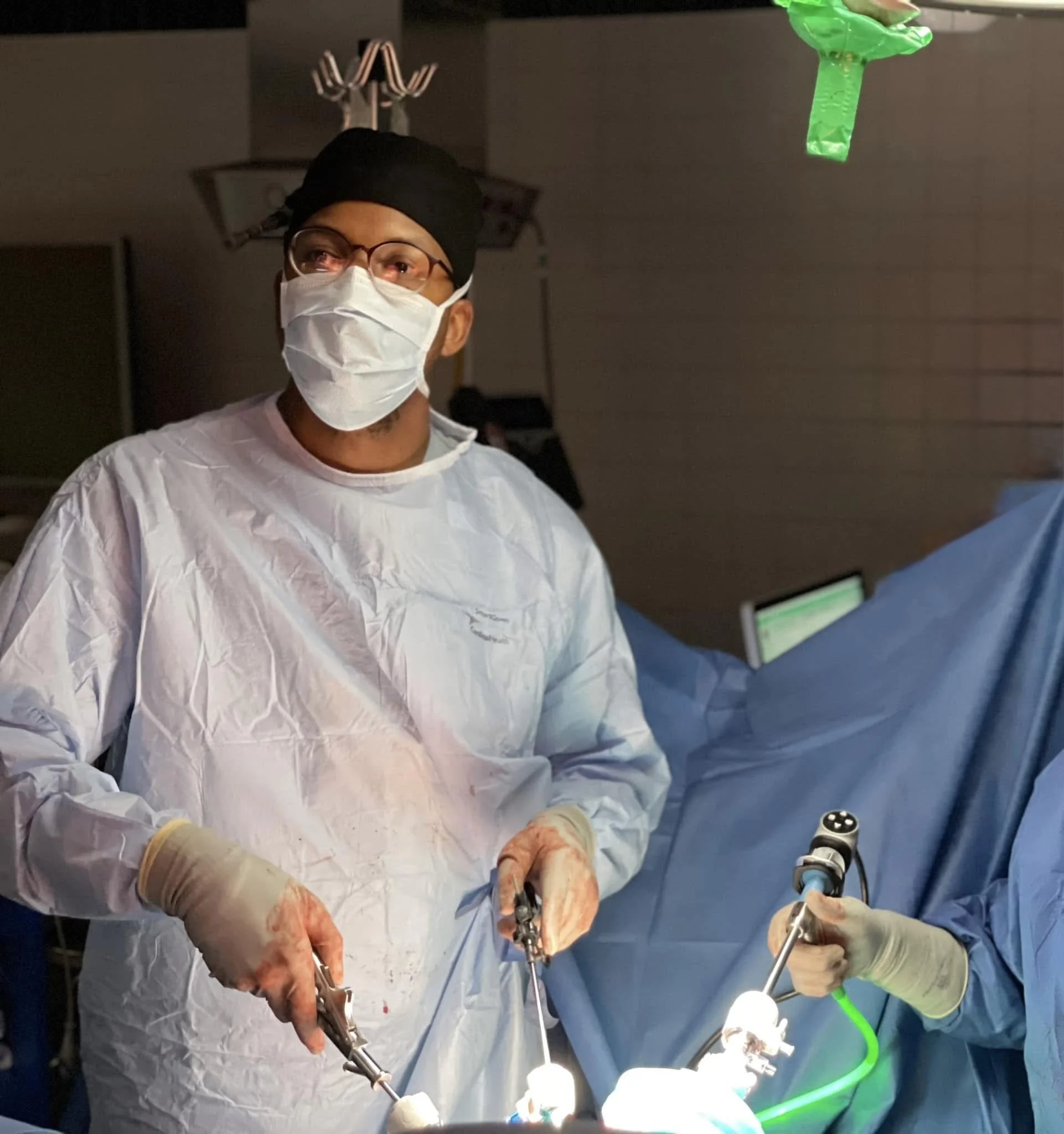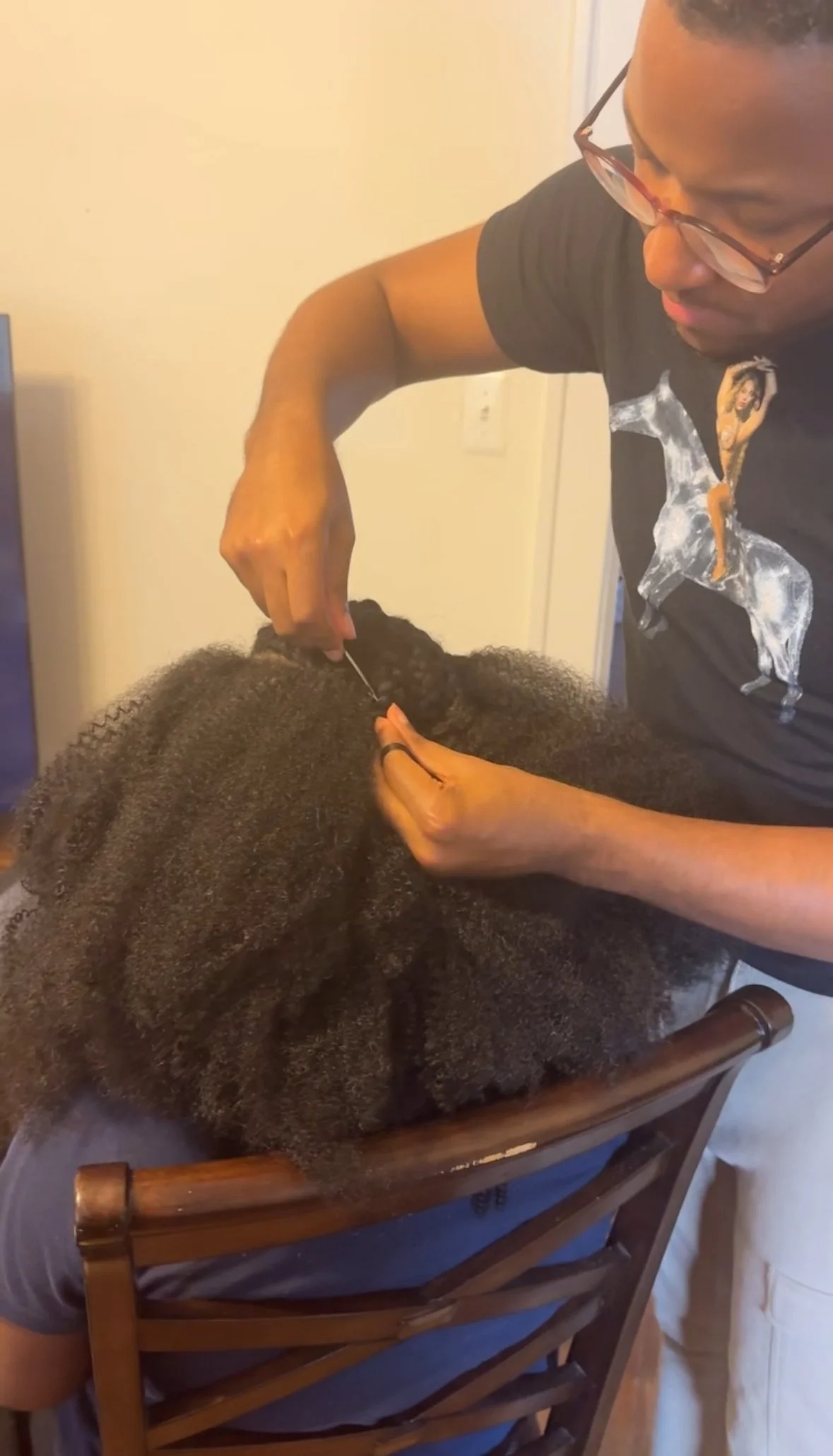From Leavenworth to the Lab: A Dream Decades in the Making
Dr. Nicolas Johnson didn't stumble into reproductive medicine. He sprinted toward it, driven by curiosity, compassion, and an unwavering sense of purpose that had been with him since elementary school.
"Growing up, I was that little kid in the second grade who, whenever we learned about a new animal, my number one question was, 'Well, how do they reproduce?'" Johnson laughs. "I was always interested in how things worked, especially when it came to the science of life."
Born and raised in Leavenworth, Kansas, a small military town outside Kansas City, Johnson grew up in a single-parent household as the third of four children. As a first-generation college student, he developed an early love of math and science, as well as a surprising passion for storytelling and the performing arts. "Up until I was fourteen, I thought I'd become an actor," he admits. "I love making people laugh and connecting with them. It felt like a superpower."
But a ninth-grade research paper on obstetrics changed everything.
"From that point on, I knew I wanted to be an OBGYN. And then, in eleventh grade, I discovered reproductive endocrinology while working on another research paper, this time inspired by Discovery Health documentaries. I was sixteen years old when I officially decided I wanted to be an REI."
What followed was a full-circle journey rooted in perseverance. Johnson earned his undergraduate degree in biology from Morehouse College, a historically Black institution that helped expand his worldview and deepen his passion for advocacy. He conducted summer research through the Atlanta Center for Translational Research and Endometriosis (ACTOR) program. He later worked at the National Institutes of Health (NIH) as a Developing Talent Scholar, studying ovarian metabolism in Drosophila melanogaster, commonly known as fruit flies.
He also saw his first embryo transfer and transvaginal ultrasound there.
"It solidified it for me," he says. "This wasn't just a passing interest. It was my calling."
The Prelude Network wanted to sponsor the delivery of this story, because they share Johnson’s passion for equity through their core belief that everyone deserves the opportunity to become a parent when they are ready. The Prelude Network is the largest and fastest-growing network of fertility centers in North America—and it’s built on providing compassionate care throughout every step of the patient journey.
Expanding the Table: Advocacy Through Representation
A powerful throughline in Johnson's story is his passion for justice and equity, particularly for patients who are rarely represented in the exam room.
"There's a major disparity in reproductive care, especially for Black women. And it's not just about access to treatment; it's cultural, emotional, and deeply ingrained," Johnson explains. He saw it firsthand as a medical student conducting semi-structured interviews with Black women navigating infertility. "I sat with them in libraries and coffee shops. We talked about stigma, shame, and the hyperfertility narrative that's long been pushed."
The ASRM found that Black women experience infertility at nearly twice the rate of white women but are far less likely to seek or receive treatment. The reasons are multifaceted: cultural expectations, a lack of provider diversity, economic barriers, and a health system that often overlooks the full picture.
"Being a Black male provider in this space means I can help patients feel seen. I don't pretend I can solve everything, but I can chip away at systemic inequities in meaningful ways."
“There's an art form to what I do as a physician and a surgeon.”
Looking to Take Your Career to the Next Level?
Discover the Fastest-Growing Fertility Network in North America – Your Dream Job Awaits!
Are you ready to grow in a career that matters? Join Prelude, the fastest-growing fertility network, offering exciting opportunities in clinical, administrative, and REI roles with unmatched career growth and a fantastic employee experience.
Competitive salary & benefits
Growth potential and geographic flexibility
A supportive and dynamic team environment
Rewarding work that makes an impact
Now starting his first year of fellowship in Reproductive Endocrinology and Infertility at the University of Cincinnati, Johnson feels he's exactly where he's meant to be. He chose the program for its robust training and unwavering support.
"From my first interview, I felt welcomed. They even hosted a division dinner so that everyone could meet me. I felt like I belonged. I'll be supported here, and that's how I'll become the kind of provider I want to be."
He also finds community among his fellow first-year REI trainees nationwide. National retreats and group chats provide opportunities for camaraderie and career support. And while he hasn't decided whether to fully lean into social media like some of his peers, he acknowledges its value.
"Patients already love me," he jokes. "My mom thinks I'm hilarious and should be on TikTok. But I also want to maintain my individuality and privacy. Maybe one day I'll find a balance."
Salon Jean Song and the Science of Style
When he's not immersed in research or the operating room, Johnson turns to one of his most unexpected talents: hairstyling. A self-taught braider since the age of 12, he runs a home salon affectionately known as "Salon Jean Song," with accents and all.
"It's my creative outlet," he says. "I do my co-residents' hair on weekends. We drink wine, put on a show, and catch up. I've even named my cosmetology mannequins Patrice and Sheila."
It's more than a hobby. For Johnson, hairstyling is yet another way to connect with people he loves and express a different form of artistry that aligns with his values.
“Faith, in whatever form it takes, is essential for healing.”
Dr. Johnson’s approach to medicine is deeply spiritual, reflecting a journey from Catholicism to a broader spiritual philosophy. “Spirituality is a big part of my life and my practice,” he shares. “It helps me stay grounded and connected with my patients on a deeper level.”
This spiritual perspective permeates his work, as he encourages patients to adopt a positive mindset and incorporate faith into their healing processes. “Faith, in whatever form it takes, is essential for healing,” he says. “It’s about believing in something greater than ourselves.”
Looking Ahead: Heart, Research, and Representation
When asked where he sees himself in 5–10 years, Johnson envisions a hybrid career that combines academia and clinical care. He aims to continue researching disparities in reproductive outcomes, serve as a community resource, and support the next generation of physicians who reflect the diversity of the patients they care for.
"I don't think I'll solve everything, but I can play my part," he says. "I want to be a safe space for my patients. I want to put my heart into what I do."
He carries with him a quote from Brené Brown that he's adapted as a personal mantra: "Worthiness has no prerequisites, and you will always be enough for what you've been called to do."
For the field of reproductive medicine and for countless patients who will meet Dr. Nicolas Johnson in the years ahead, that calling couldn't be clearer.
Looking to Take Your Career to the Next Level?
Discover the Fastest-Growing Fertility Network in North America – Your Dream Job Awaits!
Are you ready to grow in a career that matters? Join Prelude, the fastest-growing fertility network, offering exciting opportunities in clinical, administrative, and REI roles with unmatched career growth and a fantastic employee experience.
Competitive salary & benefits
Growth potential and geographic flexibility
A supportive and dynamic team environment
Rewarding work that makes an impact
The advertiser does not have full editorial control over the content of this article. As a brought-to-you-by sponsor of IRH In Scope, the advertiser only has editorial control over what is mentioned about their company. Inside Reproductive Health maintains full editorial independence over the remainder of the article. The views and opinions expressed in this article do not necessarily represent the views of the Advertiser or of Inside Reproductive Health.






